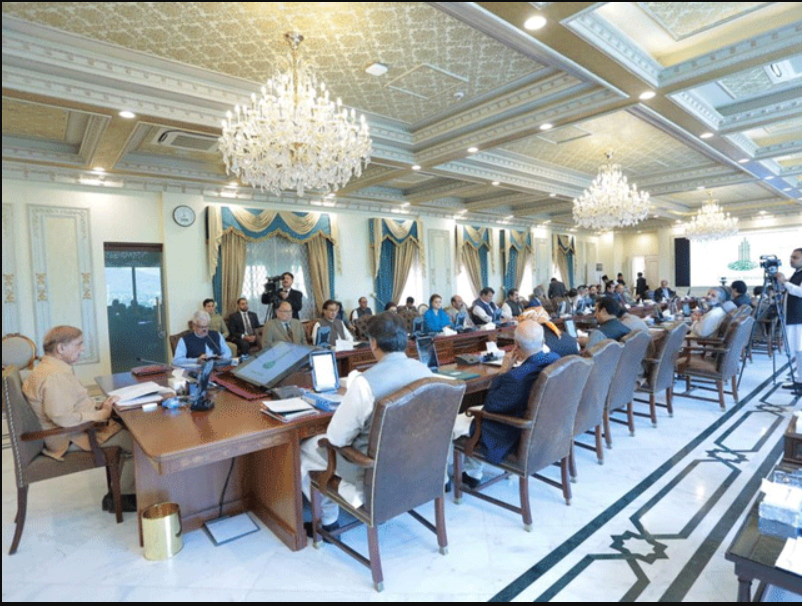
The federal cabinet on Monday approved drastic changes in the accountability laws and put a limit on the jurisdictions of anti-graft watchdog, barring surveillance through agencies and stripping the president of powers to appoint accountability judges.
In addition, the National Accountability (third amendment) bill, 2020, stipulates that the National Accountability Bureau (NAB) cannot investigate cases amounting to less than Rs500 million and defines the limit of a suspicious financial transaction while bounding the bureau to share the grounds of arrest at the time of arrest and empowers it to discharge or acquit accused at any stage.
Hence, corruption cases under Rs500m will not come under the watchdog’s ambit, if the bill is passed.
Meanwhile, in a proposed amendment to Section 19E, NAB's authority to allow surveillance with the help of a high court will be withdrawn, including any assistance from government agencies to be used against the accused in the trial.
The said section has been replaced with a new one which states that any person called to provide information in relation to an offence alleged to have been committed will be informed of the allegations against them so they can file their defence in court.
Similarly, through an amendment in Section 4, NAB will be disabled to investigate into amnesty schemes as it states that the proposed law will not apply to the “transactions or amounts duly covered by amnesty schemes of Government of Pakistan”.
Interestingly, the proposed bill also states that the accused cannot be fined anymore as Section 11, which deals with the imposition of fines, has been omitted. Existing Section 11 states: “where an accused found guilty of an offence is sentenced to pay a fine, the amount of the fine shall in no case be less than the gain derived by the accused or any relative or associate by the commission of the offence.”
Amendments in Section 16 reveal that “notwithstanding anything contained in this section, an accused shall be tried for an offence under this Ordinance in the Court in whose territorial jurisdiction the offence alleged to have been committed”.Newly added section 16A (d) says that it applies to Islamabad just like any other province; meaning cases can be transferred from the capital to provinces as well.
Apart from defining jurisdiction, the filing of the supplementary reference has been linked with new facts and the court’s permission. It says that “NAB shall file the reference after the investigation is fully completed, which shall be treated as the final reference, and no supplementary reference shall be filed thereafter unless investigation reveals new facts and with the permission of the court.”
Read SC registrar returns PTI plea against NAB law tweaks
Similarly, banks or financial institutions shall be obliged to certify the copies of books, ledgers, cash books, and transactions in accordance with the law with regard to the subject inquiry or investigation.
Furthermore, the anti-graft watchdog’s powers to seek the aid and assistance of any government agencies will be stripped as the text of Section 19(e) has been replaced with the new one, omitting the same.
Under Section 20, the limit for reporting suspicious financial transactions has been set at Rs2 million. “For the purpose of this section, a transaction in cash over two million Rupees shall be considered as an unusual or large transaction,” reads the explanation.
A proposed amendment in Section 24 bounds NAB to inform the holder of a public office or any other person “at the time of arrest” about the grounds and substance on the basis of which he has been arrested. The existing section allowed NAB to inform the accused about grounds for arrest “as soon as may be”.
Meanwhile, Section 25 states that the statement of an accused entering into a plea bargain or voluntarily return shall not prejudice the case of any other accused. Failure of the accused to make payment in accordance with the plea bargain agreement approved by the court shall become inoperative with the rights of the parties.
The time limit of one month for NAB to submit the amount deposited by the accused to the federal government has been lifted in the proposed bill. Secrecy of documents has been protected under proposed Section 27 as it says “except to seek information, document or assistance the secrecy of which is protected under the law”.
Surprisingly, there will not be any punishment for absconding to avoid service of warrants under Section 31A as it has been proposed to be omitted. If passed, there will also be no more proclamation for person absconding or attachment of property of person absconding under Section 87 and 88 of the Criminal Procedure Code as it has been omitted in the proposed bill.
In an amendment to Section 31B, the chairman's powers to terminate cases and pending proceedings were further extended, including withdrawal of cases both partly or wholly, but subject to certain conditions if such proceedings are unjustified prior to the filing of reference, after the filing, before the charge is framed or after the charge is framed.
The accused can be discharged or acquitted in respect of such offence or offences.
Another proposed amendment will strip the president of his authority to appoint judges of accountability courts in consultation with high court chief justices. That privilege will instead reside with the federal government.






1730379446-0/WhatsApp-Image-2024-10-31-at-17-56-13-(1)1730379446-0-270x192.webp)
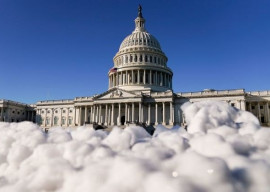




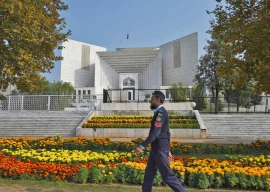

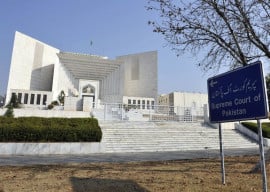
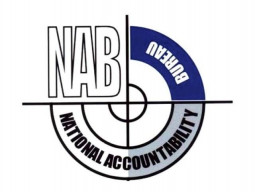






COMMENTS (1)
Comments are moderated and generally will be posted if they are on-topic and not abusive.
For more information, please see our Comments FAQ